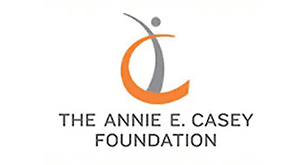Introduction High school completion and post-secondary enrollment are taken for granted by most K-12 students andtheir parents in the United States (Lippman et al. 2008; Pew Research Center 2011), but research points tosignificant educational disadvantages among youth with foster care … Read More
Foster Care

How Can You Not Drive? YOU CAN! DRIVE!
Introduction Few youths with foster care experience acquire a driver’s license given the absence of dedicated caregivers able to provide the resources to learn to drive. Lacking a driver’s license leaves these youths dependent on public transportation or friends who … Read More

Supporting Foster Youth and Their Family Connections: Policy and Practice Recommendations
In this study, a research team from UCLA learned directly from the youngest generation of foster youth transitioning into adulthood about the issues facing them personally and in relation to their family connections. We heard about issues that impacted them … Read More

FASD United Fetal Alcohol Spectrum Disorders (FASD) Resource Directory
Search the FASD Resource Directory for FASD United affiliates, diagnostic services, support groups, prevention programs, and other resources. Due to a lack of trained professionals and recognition of FASD it can be a challenge to quickly identify accessible FASD-informed services. … Read More

The Unintended Consequences of“Lack of Supervision”Child Neglect Laws: How Developmental Science Can Inform Policies about Childhood Independence and Child Protection
Policies and programs designed to serve children and families are built upon a general understanding of child development. Developmental research has tried to expand that understanding and determine the typical ages at which children acquire certain skills and capabilities, while … Read More

Discrimination In Multi-Phase Systems: Evidence From Child Protection
Introduction Large racial disparities have been documented in many high-stakes settings—such as employment, healthcare, housing, and criminal justice—raising concerns of discrimination by individual decision-makers. At the same time, there is growing understanding that a focus on individual decisions can yield … Read More

Recommendations for Regulating Artificial Intelligence to Minimize Risks to Children and Their Families
From January 2023 to March 2024, multiple entities have published guidance on artificial intelligence (AI), underscoring growing public concerns regarding AI governance. Meanwhile, as federal and state legislators weigh the need for AI regulations to safeguard the public from various risks, recent discourse … Read More

Connecting Sex Trafficking Survivors To Education And Jobs
Wellspring Living, a grantee of the Annie E. Casey Foundation, is a nonprofit that serves survivors of sex trafficking and those at risk for exploitation. Based in Metro Atlanta, a city with one the highest rates of human trafficking in the United States, the organization … Read More

Creating Equitable Ecosystems of Belonging and Opportunity for Youth An Action Guide for Cross-System and Sector Leaders and Practitioners
Ecosystem for Youth Belonging and Opportunity The concept of a youth development ecosystem, builds from and expands upon Urie Bronfenbrenner’s Ecological Systems Theory, which views child development within the context of the system of relationships that form their environment. Broffenbrenner, … Read More

Bridging the Gaps: Child Welfare’s Vital Role in Public Health Emergencies Addressing Intimate Partner Violence
The National Academies report, “Essential Health Care Services Addressing Intimate Partner Violence,” released on January 11, 2024, serves as a pivotal resource for child welfare agencies and their staff to be effective partners with other key governmental agencies to address … Read More
